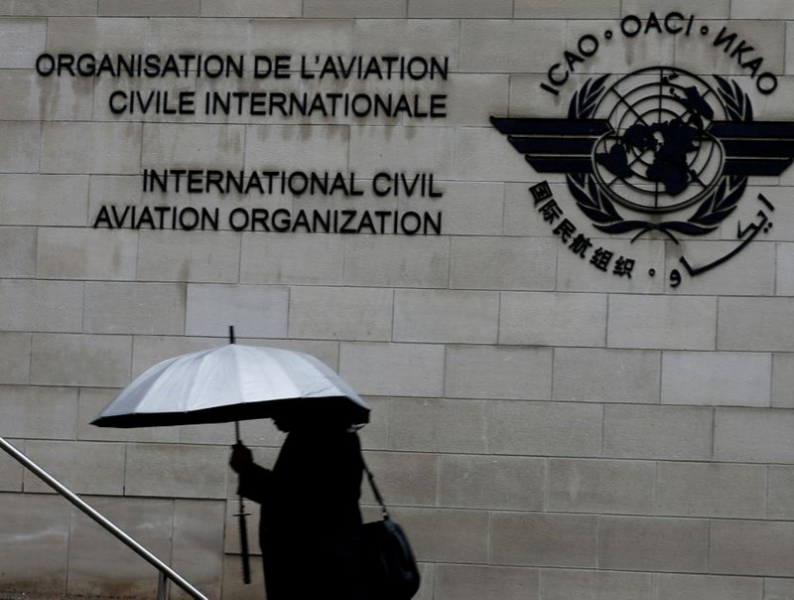Ryanair plane diverted to Belarus ‘had to land there’ – aviation experts By Reuters

(Reuters) – The captain of the Ryanair plane intercepted by a Belarusian warplane and forced to land in Minsk after what turned out to be a false bomb threat had little choice but to comply, aviation experts and pilots said.
The scrambling of a warplane by Belarus to arrest a journalist, Roman Protasevich, has provoked outrage among Western leaders and prompted several airlines to divert flights away from Belarusian airspace.
“If the interceptor directed the Ryanair flight to Minsk, then they had to land there,” said John Cox, a former US Airways pilot who is now an aviation-safety consultant.
“Pilots are trained for this, and there are internationally-agreed signals between the interceptor and the airliner,” he said, adding that pilots carry drawings or descriptions of the intercept signals with them on every flight.
In the event of a bomb threat aboard, pilots would adhere to instructions on where to land and assume that the intercepting aircraft was there to help.
“You don’t question the intention (of an interception) because the assumption is that they’re there on your behalf,” said one pilot at a European airline.
“It’s their airspace and you don’t start a discussion with a MiG-29,” said another pilot, referring to the military fighter jet which Belarus scrambled to intercept Ryanair’s plane.
While airlines are required to provide passenger manifests for international travel, pilots are not usually informed of who is on board, aviation experts said.
The incident has strained a decades-old system of cooperation amid a flare-up of East-West tensions, with the UN’s International Civil Aviation Organization (ICAO) saying Belarus’ action may have contravened the Chicago Convention, a core aviation treaty.
“We strongly condemn any interference or requirement for landing of civil aviation operations that is inconsistent with the rules of international law,” the International Air Transport Association (IATA) said on Monday and called for an investigation.
But the practicalities of organising such a probe are unclear as aviation, though highly regulated nationally and supported by globally harmonised rules to keep skies safe, lacks a global policeman to avoid constant disputes over sovereignty.
Meanwhile, lawyers said any probe or legal claim would also have to plough through a tangle of jurisdictions typical of liberalised air travel: a Polish-registered jet flown by an Irish group between EU nations Greece and Lithuania, over non-EU Belarus.

